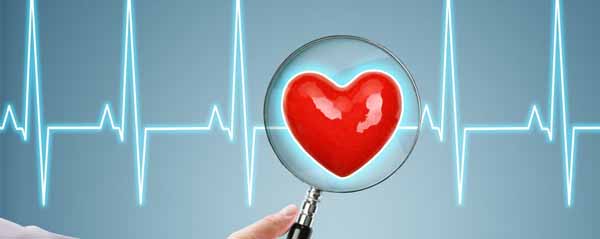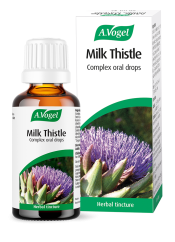What happens to your body when you have anaemia?
Anaemia is a condition whereby the body lacks enough healthy red blood cells to transport oxygen around efficiently. It's estimated that there are over 400 different forms of anaemia, but here today, I'll be focusing on iron-deficiency anaemia and pernicious anaemia, caused by a shortage of vitamin B12 and folate.1
In this blog, I'll be taking a look at 10 ways anaemia can affect your body and addressing the following symptoms:
- 1. Low blood pressure
- 2. Heart palpitations
- 3. Breathlessness
- 4. Anxiety
- 5. Fatigue
- 6. Temperature regulation
- 7. Dizziness
- 8. Headaches
- 9. Pale complexion
- 10. Weak hair and nails
Once I've discussed these signs, I'll go into detail about the health conditions sometimes associated with anaemia, when you should speak to your doctor, and what you can do at home to tackle these difficult symptoms.
1. Low blood pressure

Believe it or not, anaemia can impact your blood pressure. This makes sense when you think about it – if you're not producing enough red blood cells due to a lack of folate or vitamin B12 in your diet, then blood isn't going to be pumped around your body as efficiently. This can lead to low blood pressure.
Now, you might be thinking that, since high blood pressure is such a bad thing, surely low blood pressure can't be that terrible? Well, low blood pressure might not be as dangerous as high blood pressure but it can have a noticeable effect on your health. Dizziness, fatigue, nausea: all of these are symptoms of low blood pressure that can easily impact your day to day life.
2. Heart palpitations

Heart palpitations are an alarming symptom often associated with serious cardiac problems. However, it can also crop up in cases of anaemia too. Here, it arises when the haemoglobin in your red blood cells is low – haemoglobin is the red protein in red blood cells that gives blood its famous colour. The main function of haemoglobin is to carry oxygen from your lungs to the rest of your body but there's a catch – you need plenty of iron to manufacture haemoglobin properly.
In cases of anaemia, when haemoglobin is low (possibly lowering your blood pressure too, as I've mentioned), your heart will start to beat faster in an effort to pump more oxygenated blood around your body. This may cause the aforementioned heart palpitations.
Please be aware, though, as I've mentioned, heart palpitations can be linked to a number of health problems so, if you're experiencing them, always speak to your doctor just to be safe.
3. Breathlessness

Breathlessness is one symptoms of anaemia that can be extremely distressing to experience but, again, it's all about the flow of oxygenated blood through your body. If your body recognises that certain organs and muscles aren't getting a decent enough supply of oxygen, then pressure will be put on your lungs to get more oxygen into your body – hence why your breathing might be affected, especially during physical exertion.2
Again, despite this, you should always have symptoms of breathlessness checked by your doctor.
4. Anxiety

The impact of anaemia isn't just limited to your physical health – your mental health may also be affected too. This could be due to the sudden barrage of physical symptoms – if you're experiencing heart palpitations, are feeling fatigued and have noticed other changes then, naturally, this will take a toll on your mood.
However, it's worth bearing in mind that your nervous system is one area of your body that may be deprived of oxygen too. This lack of oxygen could potentially exacerbate any underlying anxieties. One study, looking specifically at the long lasting and behavioural impact of iron deficiency on infants found that parents of formerly iron-deficient children expressed concerns about anxiety and depression.3
5. Fatigue

Red blood cells are responsible for transporting oxygen around your body and, if this vital function is not being carried out, it means that certain areas of your body are going to be deprived. This will, understandably, make you feel drained and utterly exhausted. Your energy levels will start to sink and you'll find that you feel tired most of the time, even when you haven't physical exerted yourself.
6. Temperature regulation

This again relates back to the idea of anaemia affecting your blood pressure and circulation. If blood isn't being pumped around your body properly, it can mean that less blood is being delivered to certain parts of your body, as I've discussed. This will mean that you become more vulnerable to feeling cold and shivery, even during the warmer summer months. While other people are complaining about the heat, you'll want to reach for the nearest and warmest cardigan!
7. Dizziness

Low levels of red blood cells can mean that oxygen isn't reaching your brain as efficiently and this will, in time, risk causing you to feel dizzy and lightheaded. This is because fainting is a quick way for your body to get blood and oxygen to your brain – by forcing your body into a horizontal position, gravity is on your side and blood can reach your brain easier.
8. Headaches

Head pounding? It could be anaemia. As I've mentioned before, since anaemia can affect the blood flow to your brain, this can impact your blood vessels, causing them to dilate. This then increases the pressure around your head and could possibly lead to a headache.
9. Paler skin

One of the more unusual symptoms of anaemia is how it can affect your skin. You see, it's the haemoglobin in blood that gives it its red colour. In cases of anaemia, the colour of your blood can be affected, thus meaning that your skin becomes sallower in appearance.
This effect isn't just limited to your face – anaemia can make the inside of your lower eyelids, the inside of your lips and your gums paler in appearance. It's one of the first symptoms that doctors will use to identify the condition.
10. Weak hair and nails

Did you know that your hair follicles contain ferritin, a blood cell protein that contains iron? Therefore, if you're suffering from iron deficiency anaemia, it can affect how your hair grows, causing it to become thinner and more vulnerable to damage.
Your hair won't be the only area affected, though, as your nails can also be impacted by anaemia. This is because iron is a crucial component of your nails and, if you're not getting enough, your nails can become brittle or develop problems such as koilonychias, known as 'spoon nails'. In this condition, your nails become softer and can develop deep depressions.
Can anaemia cause other health problems?
There are a range of health problems out there that are capable of causing anaemia – poor digestion, heavy periods and menopause are just a few examples. However, the idea of anaemia itself triggering other health conditions is a complex issue.
If anaemia is left untreated, for example, then it could potentially lead to issues such as growth problems in children or heart problems as your heart struggles to pump more blood around your body to compensate for the lack of oxygen. That's why, as I'll soon discuss, it's really important to speak to your doctor if you suspect that you have anaemia.
Interestingly, anaemia is often linked with hypothyroidism too, a condition where your thyroid glands do not produce enough thyroid hormones. Often, those that suffer from hypothyroidism also suffer from anaemia.
A recent study, examining 400 patients found that 43% of those with hypothyroid symptoms, and 39% of those with subclinical hypothyroid symptoms, also suffered from anaemia. This was compared to the 26% prevalence in the control group.4
So, clearly there is a connection between the two conditions but, is hypothyroidism causing anaemia or is anaemia causing hypothyroidism? It's tricky to tell – iron isn't just needed to produce red blood cells, it also helps to produce the thyroid stimulating hormone (TSH). There isn't any decisive evidence yet, but it is certainly worth bearing this in mind
When should you speak to your doctor?
If you suspect that you have anaemia, then you should always speak to your doctor. If anaemia is left untreated, as I've mentioned, it can develop into unhelpful symptoms and even some more serious health conditions. The best way to get a diagnosis would be for your doctor to take a blood count.
This should be able to determine whether or not you have a lower count of red blood cells, thus indicating if there is a possibility of anaemia. Your doctor will then be able to offer guidance when it comes to treatment.
What can you do at home?
Getting a diagnosis from your doctor is an important first step but, if you are suffering from anaemia, then you may need to look into your diet and lifestyle habits at home. It's very likely that your doctor will prescribe an iron or B12 supplement for you to take but, in addition to this, you could try increasing your intake of foods rich in these nutrients.
| Iron | B12 | Folate |
| Organic red meat | Liver | Kidney beans |
| Pumpkin seeds | Sardines | Asparagus |
| Lentils | Eggs | Beetroot |
| Spinach | Fortified non-day milk | Brussel Sprouts |
| Tofu | Fortified cereals | Walnuts |
As you can see, there are a wide range of foods present here – you could try toasting pumpkin seeds with soy sauce for a quick, iron-rich snack, or, alternatively, you could have some sardines on toast to increase your vitamin B12 intake. However, you might also want to think about aiding your absorption of these nutrients.
Unfortunately, sometimes deficiencies aren't just down to simply not eating enough of one food group – it's all about how our body absorbs these nutrients once they are consumed. For example, vitamin C is very important when it comes to absorbing iron and, for B12 to be utilised properly by the body, we need to be producing strong gastric secretions.
If you're worried about your iron or folate intake, I'd also recommend trying some beetroot juice. Beetroot juice is naturally rich in iron, together with both vitamin C and folate, so it could help to improve the absorption of iron further, whilst also increasing your intake of folate.
When it comes to improving your absorption of certain nutrients in the gut, you could try a bitter herbal complex like Yarrow. This can help to balance your gastric secretions, making sure your digestive juices are working nicely to breakdown your food and absorb nutrients efficiently.
1https://www.medicalnewstoday.com/articles/158800.php
2https://www.nhlbi.nih.gov/health-topics/iron-deficiency-anemia
3https://www.ncbi.nlm.nih.gov/pmc/articles/PMC1540447/
4https://www.ncbi.nlm.nih.gov/pubmed/22200582






 Looking for our products in a store near you?
Looking for our products in a store near you?

